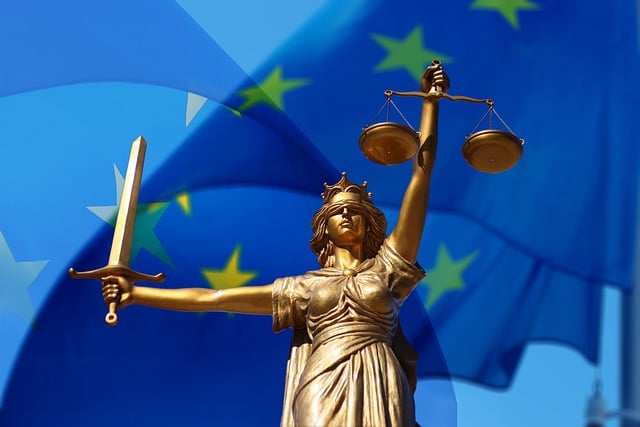Whistleblower Protection Laws facilitate legal action against corporate misconduct through Class Action Lawsuits, which unite multiple victims for nationwide accountability, and Individual Lawsuits, offering personalized approaches catering to diverse circumstances, including white-collar crimes. Both require strategic decision-making, comprehensive document review, expert preparation, and knowledge of whistleblower laws to secure favorable outcomes, with successful cases resulting in substantial compensation and corporate changes, ultimately reinforcing whistleblower protections.
“Uncovering truth and holding wrongdoers accountable—that’s what whistleblower protection lawsuits are all about. In today’s complex legal landscape, understanding the nuances between class action and individual lawsuits is crucial for both whistleblowers and legal professionals. This article delves into the intricacies of whistleblower protections, highlighting key differences between class actions and individual cases. We explore effective strategies, navigate legal complexities, and present success stories that underscore the profound impact these lawsuits can have.”
- Understanding Whistleblower Protection Laws
- Class Action vs Individual Lawsuits: Key Differences
- Strategies for Effective Whistleblower Cases
- Navigating Legal Complexities and Success Stories
Understanding Whistleblower Protection Laws

Whistleblower Protection Laws are a crucial set of legal safeguards designed to encourage individuals to come forward with information about illegal or unethical activities within their respective businesses, without fear of retaliation. These laws vary by jurisdiction but generally provide protections for both class action lawsuits and individual complaints, catering to diverse scenarios of corporate misconduct.
In the context of white-collar and economic crimes, these protections are vital. When a whistleblower steps forward with evidence of fraud, corruption, or other illicit activities, they may face significant personal risks. Class action lawsuits offer a collective approach, where multiple individuals who have suffered similar harm band together to hold wrongdoers accountable. Conversely, individual lawsuits focus on specific victims and their unique experiences. Understanding these distinctions is essential for those considering exposure of corporate misconduct, as it influences the strategic decision-making process for both whistleblowers and their legal representatives, ensuring that the most appropriate avenue is pursued for his clients’ interests.
Class Action vs Individual Lawsuits: Key Differences

When it comes to whistleblower protection lawsuits, the primary distinction lies between class action lawsuits and individual actions. In a class action lawsuit, a single plaintiff represents a group of individuals who have all suffered similar harm due to alleged illegal activities. This approach is powerful as it allows for collective action against wrongdoers, enabling corporations and other entities to be held accountable across the country. Class actions can encompass various stages of the investigative and enforcement process, from initial revelations to eventual settlements or judgments.
In contrast, individual lawsuits involve a single plaintiff pursuing legal redress on their own behalf. These suits are tailored to specific circumstances and personal injuries incurred by the whistleblower. While less impactful in terms of reach, individual actions offer a more direct and personalized approach, catering to corporate and individual clients seeking justice throughout all stages of the legal process.
Strategies for Effective Whistleblower Cases

When navigating whistleblower protection lawsuits, understanding the nuances between class action lawsuits and individual complaints is pivotal for mounting an effective case. While a class action lawsuit offers the advantage of collective representation, allowing individuals with shared experiences to band together, it also introduces complexities in terms of legal strategy and settlement negotiations. On the other hand, individual lawsuits provide more tailored approaches, focusing on specific circumstances unique to each whistleblower. This strategy is particularly relevant when dealing with white-collar and economic crimes, where evidence may be nuanced and require meticulous analysis at every stage of the investigative and enforcement process.
For successful outcomes in either format, a robust legal strategy should incorporate meticulous document review, expert witness preparation, and a deep understanding of both state and federal whistleblower protection laws. Whichever route is chosen, whether class action or individual suit, attorneys must be prepared to advocate for their clients within the unique parameters set by these cases. This involves effectively communicating complex legal concepts to both the court and the broader philanthropic and political communities, ensuring that whistleblowers receive the protections they are entitled to while contributing valuable insights to the exposure of misconduct.
Navigating Legal Complexities and Success Stories

Navigating Legal Complexities
Whistleblower protection lawsuits can be intricate legal matters, especially when comparing class action suits to individual claims. In a class action lawsuit, multiple individuals join forces to take on a corporate entity, which can provide significant leverage in terms of resources and impact. This collective approach often simplifies the legal process, as it allows for the consolidation of similar cases under one roof. However, it also demands careful consideration of strategies and potential outcomes that may affect all parties involved.
On the other hand, individual lawsuits offer a more tailored strategy. While they might not carry the same weight as a class action, they provide greater flexibility in terms of case management and settlement negotiations. This approach is particularly beneficial for corporate and individual clients looking to avoid indictment or severe penalties while still seeking justice. Success stories within these cases demonstrate that effective legal representation can lead to substantial monetary rewards and positive changes in corporate practices, ensuring a safer environment for future whistleblowers.
Whistleblower protection lawsuits play a vital role in ensuring accountability and fostering a culture of transparency. By understanding the nuances between class action and individual lawsuits, as well as employing effective strategies, whistleblowers can navigate legal complexities successfully. Both paths have their merits, with class actions offering broader impact while individual suits provide targeted relief. Ultimately, the choice depends on the specific circumstances, and a comprehensive strategy tailored to each case is key to achieving justice and positive change.






